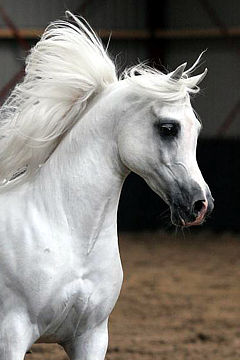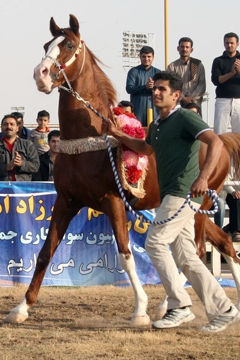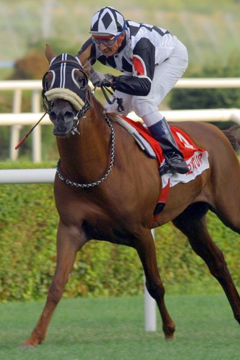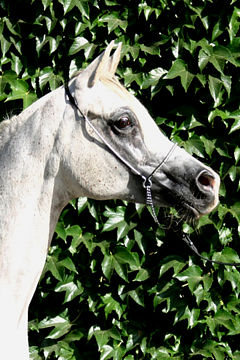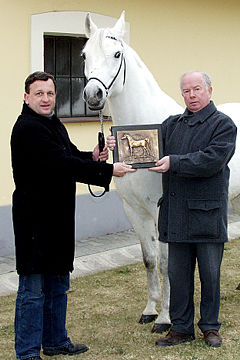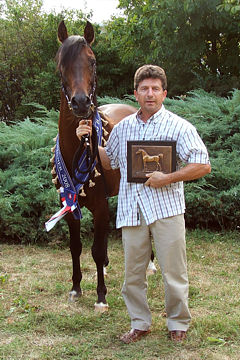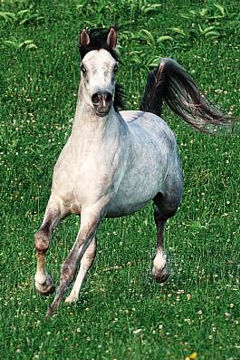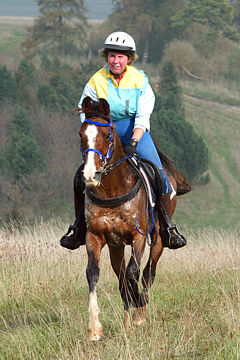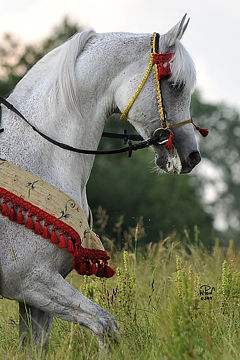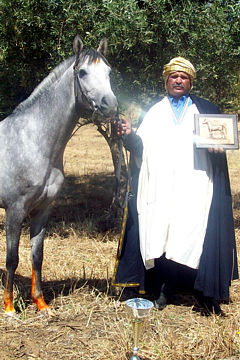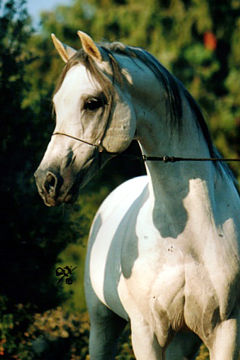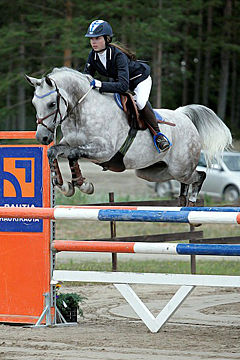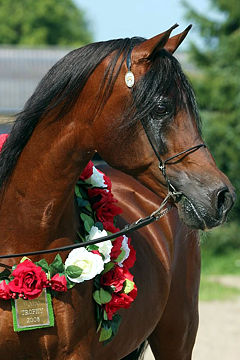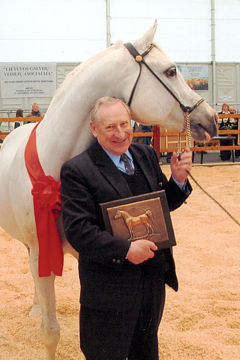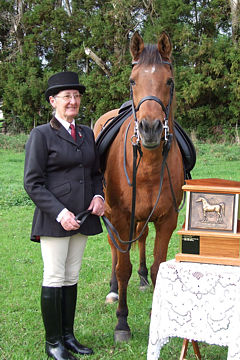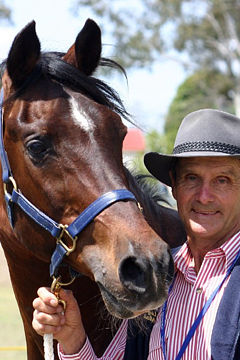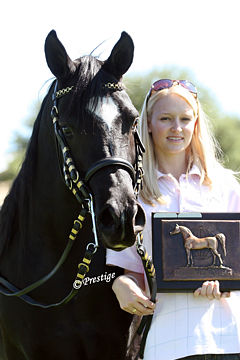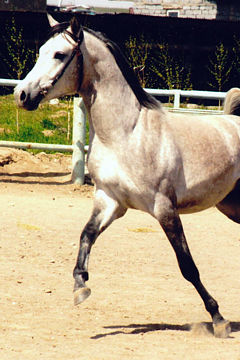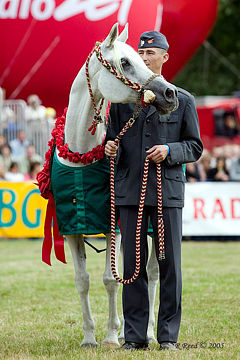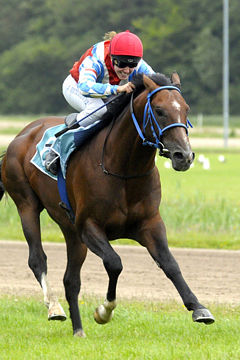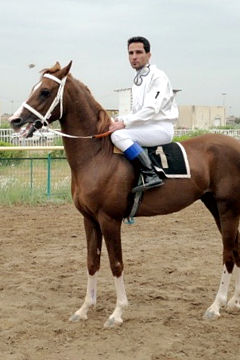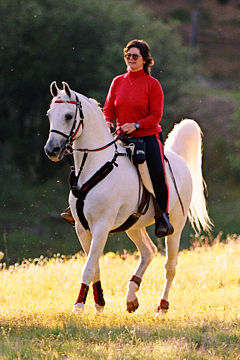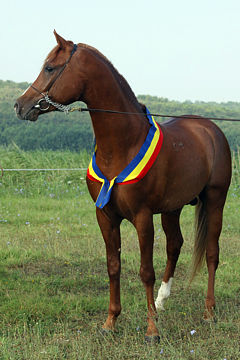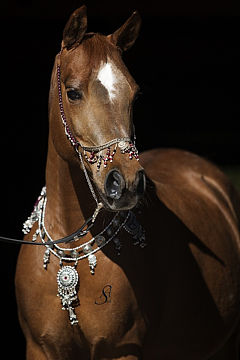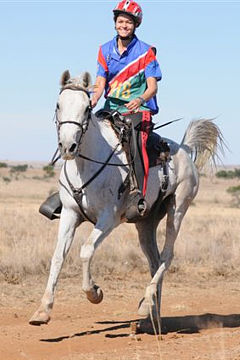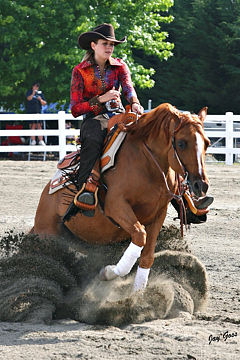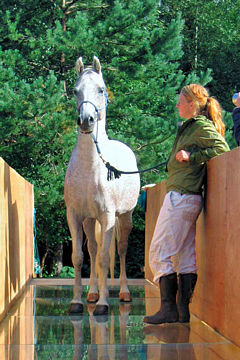![]()
Member Report from Japan
2019 REPORT:
The Japan Association for International Racing and Stud Book provided the following information. In 2017, no foals were registered and there were no imports or exports. There were 13 broodmares and 8 stallions. In 2018, 1 foal was registered.
2017 REPORT
The Japan Association for International Racing and Stud Book has provided the following information. In 2016 no purebred Arabian foals were registered in Japan. They have 16 broodmares and 7 breeding stallions, which are also used for breeding derivatives such as Anglo-Arabians.
PREVIOUS REPORTS:
AT THE 2011 WAHO CONFERENCE IN DOHA, STATE OF QATAR, THE DELEGATES VOTED UNANIMOUSLY TO ACCEPT THE FIRST VOLUME OF THE JAPANESE STUD BOOK AND THE JAPAN ASSOCIATION FOR INTERNATIONAL RACING AND STUD BOOK (JAIRS) BECAME A FULL REGISTERING AUTHORITY MEMBER OF WAHO. WE ARE DELIGHTED TO WELCOME JAPAN TO THE WAHO FAMILY.
EXTRACT FROM WAHO CONFERENCE VERBATIM REPORT, SECTION ON JAPAN:
Peter Pond: The next two items on the Agenda are relating to Japan and Australia. After that I will pass it over to David Angold for the financial reports.
In relation to Japan, I would like to read a statement regarding their acceptance as a full Registering Authority Member of WAHO. As you know, Japan has been an Applying Member of WAHO since the mid-1980s. With only a handful of Arabian foals produced each year, all born from imported parents from WAHO approved studbooks, it is only now that they feel that they have enough Arabians to make it viable to complete their first studbook and move from Applying Member status to full Registering Authority Member status. They pay their annual dues and foal levy on time every year, and send in the usual annual reports on their statistics to the WAHO Office. The name of the Japanese Registry changed in 2010, it remains the same highly respected and very efficient and professional organization that registers thoroughbreds, previously known as the Japan Racehorse Registry. The new name is the Japan Association for International Racing and Studbook, which is JAIRS. JAIRS now feels that full WAHO Registering Authority Membership would not only benefit them on the international stage, but they also believe that they could make a great contribution to WAHO in the future.
As a note of historical interest, the earliest documented imports to Japan date back well over 100 years and include horses from the United Kingdom, France, Hungary, Portugal, Syria and Saudi Arabia. In other words, essentially the same sources of foundation horses as for many other countries. Unfortunately, there are no living descendants of any of these horses in the first volume of the Japanese Arabian studbook, which has been presented to WAHO for approval. Therefore, I will just repeat, none of the historical horses appear in the studbook that has been presented.
This studbook is in compliance with WAHO’s rules and regulations. There is no private Arabian Breeders Society as the studbook is run by JAIRS which ultimately comes under the Japanese Government’s control. The studbook covers the period 1981 to 2009 and includes 28 imported horses, of which 24 were used for breeding with a combined total of 51 descendants in the volume. These 18 foundation broodmares and 6 foundation stallions which, and I will emphasise this, were all originally registered in WAHO approved studbooks, and were imported between 1969 and 2008. They were from Hungary, Oman, France, America, Australia, Great Britain and Portugal. There are 12 individual breeders represented in this studbook. All the horses included in Volume 1 have been either blood-typed or DNA-typed and all foals born in Japan are parentage verified prior to registration. The JAIRS website is extensive and comprehensive and you are welcome to view it.
The draft studbook, which includes a 4-generation pedigree of each broodmare, breeding stallion and imported horse without progeny to date, has been cross-checked by WAHO and found to meet the approval standards. The Japanese registration rules are also in compliance with WAHO rules. At this time Japan does not allow the use of either artificial insemination or embryo transfer within the country. It is WAHO’s understanding that the Arabian horses in Japan are mainly used for endurance and pleasure riding. As yet there are no shows or races specifically for Arabians. Some of the Arabians are also used in derivative breeding, mainly in the past to produce Anglo-Arabs. On average, 5 purebred Arabian foals are born each year.
To sum up this brief and straightforward report, Japan has been an Applying Member for many years and has now completed all the formalities required to qualify for full Membership. All of their horses immediately trace to horses previously registered in other WAHO Registering Authority Member countries. They have been through a thorough full review process and yesterday the Executive Committee unanimously passed a motion to approve the Japanese Arabian Studbook Volume 1 and to accept Japan as a full Registering Authority Member of WAHO.
Are there any questions before I move on to ask for a motion with a mover and a seconder to accept this studbook? Are there any questions from the floor?
In the absence of any questions, could I please have someone move the motion from the floor that Japan be accepted as a full Registering Authority Member of WAHO and for the acceptance of Japan and the Japanese Arabian studbook into the WAHO Definition. Do I have such a motion? Proposed by Argentina, seconded by Kuwait and Australia. Could I now have a vote for acceptance. All those in favour of accepting Japan as a full Registering Authority Member. (Delegates: ‘Aye’). All those against? (Silence). Any abstentions? (Silence). I declare the motion passed and Japan has now been accepted as a full Registering Authority Member of WAHO.
Congratulations to Japan. (Applause).
STATISTICS FOR 2011
:
Between 3 and 5 foals are registered annually, in 2011 there were 3. There are 19 active broodmares and 9 breeding stallions. All foals are parent verified by DNA prior to registration, microchips are not used. Only natural covering is allowed, neither artificial insemination nor embryo transfer are allowed. 1 horse was exported to the United Kingdom in 2011, no horses were imported. Endurance is the most popular activity for Arabians in Japan at this time.

